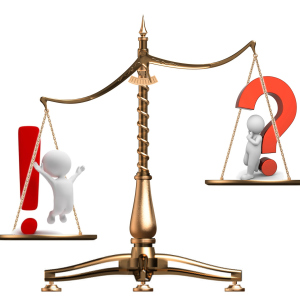A referendum is an open vote, during which all voters are invited to give a voice for or against a specific offer.
History of origin
For the first time, the name "Referendum" is involved in the Swiss district Graubyundden back in the XVI century. The word "plebiscite" carries in itself a common importance in today's use and comes from Latin plebiscite, which first meant the decision of the Plebeian Council - the famous meeting of the Roman Republic.
- Currently, the referendum equally denotes the plebiscite, but in individual states these two terms are used in different ways to designate votes with various species of legal consequences.
- For example, Australia defines a "referendum" as a vote for changing the Constitution and Plebiscite as a vote, which does not affect the Constitution.
- On the contrary, in Ireland, only one plebiscite was held, which was a vote for the adoption of his constitution, and all other voting were named referendums.

Typology
The term "referendum" covers many different values. The referendum may be mandatory or advisory. In some countries, different names are used for these two types of referenda. Referendums can be additionally classified by those who initiate them: Mandatory referendums provided for by law, voluntary referendums initiated by the legislative body or government, as well as referendums initiated by citizens.

Justification
V political and philosophical The sense of referendum is an expression of direct democracy. However, today Most of the referendums must be understood in the context of representative democracy. Therefore, they, as a rule, are applied quite selectively, including such tasks as modifications of voting methods, where the selected officials may not have legitimacy or inclination to carry out these changes.

Multiple choice referendum
A multiple choice referendum raises the question of how to determine the result, if no option will receive support for the unconditional majority (more than fifty percent) of voters - for many, this is an important condition; Others believe that the majority methodology will be the most comprehensive and more loyal. This task can be solved by applying a voting procedure designed to choose a single winner in favor of a referendum with a multiple choice.
Swiss referendums solve this issue, implementing a separate voting, respectively, each of several options, and similarly an additional vote on which of several alternatives should be preferable. In a Swedish version, on both referendums, the winning option was considered that it was supported by a large number, and far from the undoubted majority of votes.

Criticism
Referendum criticism state that the population on the referendum is more often guided by temporary whims, and not by the method scrupulous Discussions, in other words, that they are not informed enough to make decisions on difficult or technical issues. In addition, voters can shake propaganda, competent personalities, intimidation and expensive marketing actions. James Madison He stated that direct democracy was "majority tyranny".
Separate disapproval of the referendums arose due to their operation dictatorial modes, such as Adolf Hitler modes and Benito Mussolini, they are them, as claimed, used plebiscite for masking punitive policies as populism. Dictators can also use referendums to further legitimate their authority, so they did Benito Mussolini in 1934, Adolf Hitler in 1936, Ferdinand Marcos in 1973, Park Chun He. In 1972 and Francisco Franco in 1947.
Operation with the Hitler of the referendums was the reason that since the Second World War in Germany, plebiscides were carried out at the federal level.

The most brief definition of the word "referendum" is "a vote in which all people in the state or its field can solve an important political or social question with their will.

















